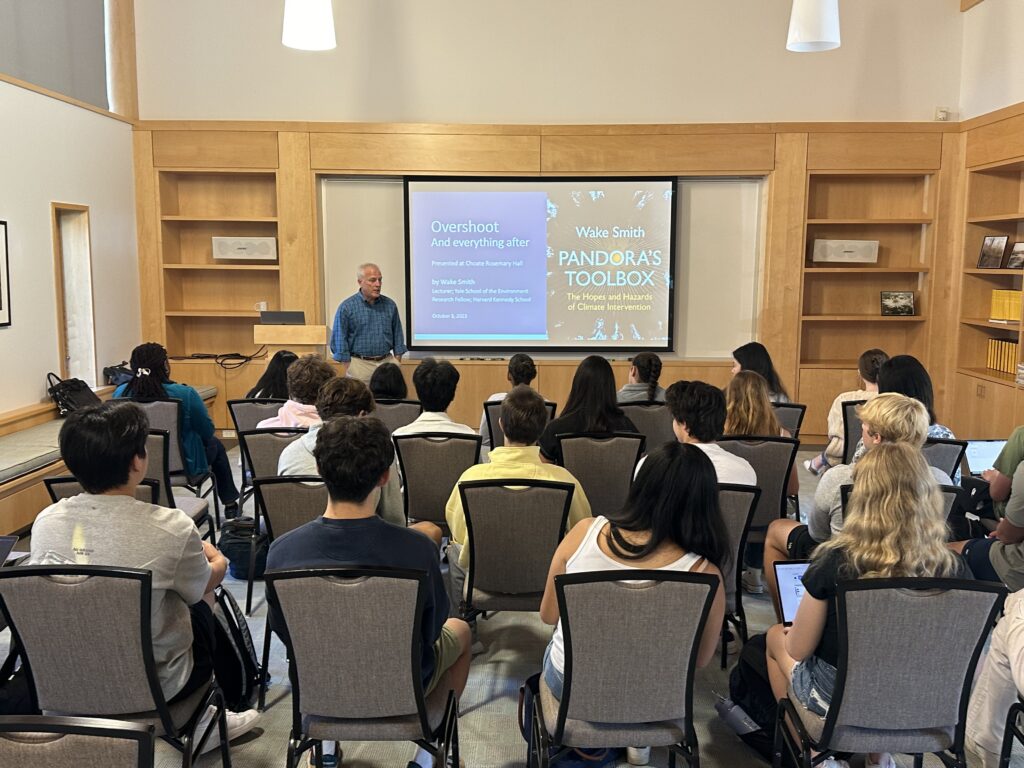
Students engage in geoengineer Mr. Wake Smith’s lecture.
By Sarina Fernandez-Grinshpun ’25
Yale University lecturer Mr. Wake Smith ’79 visited Choate last month to speak about his experience with and expertise in social geoengineering. At Yale, Mr. Smith teaches an innovative course on climate intervention, a novel industry that involves deliberately modifying elements of the Earth’s physical, chemical, and biological systems to lessen the effects of climate change. Members of the Environmental Immersion Signature Program (EIP) and the students of Choate’s Environmental Science classes met with Mr. Smith to discuss his experimental field of study.
Solar geoengineering, Mr. Smith’s field of research, is the process of scattering sulfur dioxide into the stratosphere to reflect a small amount of sunlight back into space, which reduces the amount of heat that enters the Earth’s atmosphere. This process helps to mitigate some of the effects of global warming by modifying Earth’s physical systems.
“He is a person who has had experience in the aero[space] industry … [and] has been working on determining the feasibility of doing this geoengineering,” Director of the EIP Mr. Joseph Scanio said. “It made a lot of sense to have him speak to students in the EIP since one of our goals is to have our students be aware of what is going on in the real world.”
Students who attended the lecture enjoyed the presentation and felt they learned from Mr. Smith’s insights. Daneel Polakoff ’25 shared, “His presentation brought a new perspective that I hadn’t thought about in terms of solutions to the climate crisis.”
“Something that Mr. Smith really emphasized was that climate change is real, and it’s coming,” Zein Kabbani ’25 said. “We need to resort to more innovative solutions, and solar geoengineering is one of [them].”
Acknowledging the dire state of global warming, Mr. Smith emphasized that his field of study is an opportunity for humans to develop carbon-capturing and geoengineering technologies that will reduce the effects of global warming. Mr. Smith provided insight into innovative solutions to students passionate about the topic of climate change, inspiring the next generation of climate scientists.




